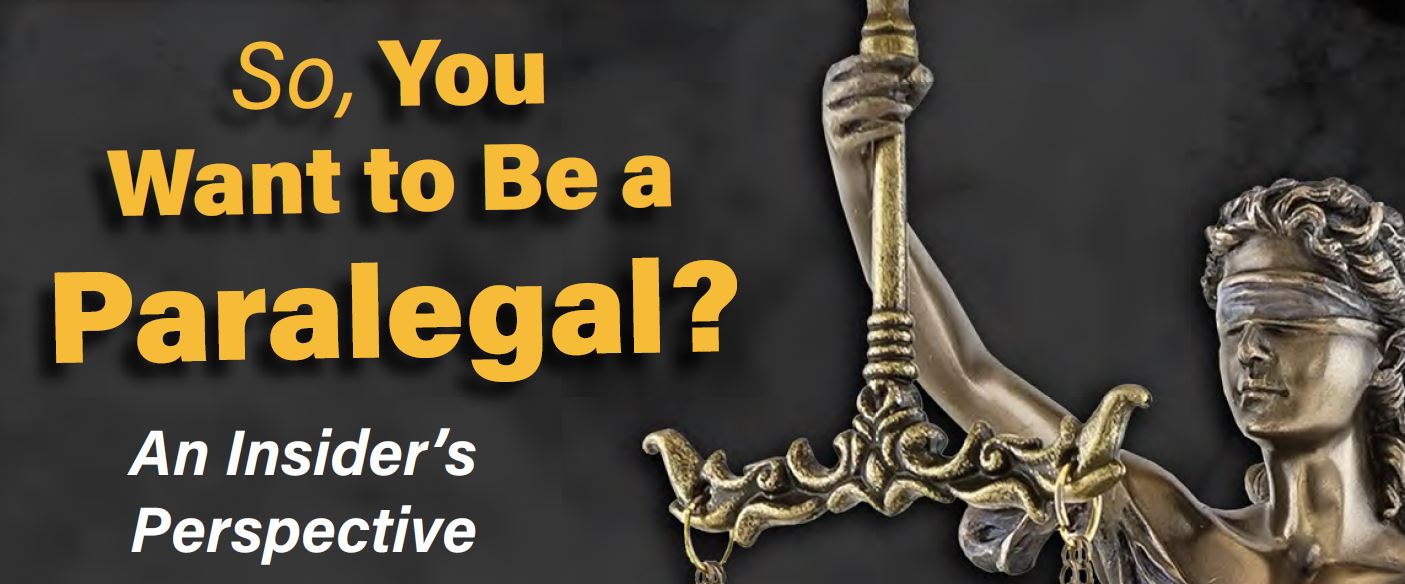Paralegal Studies
The Paralegal Studies Program offers a 24 academic-unit certificate, intended to prepare students for employment as a paralegal in various legal sectors. Students are introduced to the fundamentals of the paralegal profession to enhance the ability to reason, understand and apply correct principles of law by teaching analytical and critical thinking skills.
The program is taught by attorneys and paralegals who have practical experience in the field and satisfies all educational requirements required by California law. As such, you will gain the legal knowledge and skills to land a paralegal job in any state.
How many courses are required to complete the certificate?
The program requires 8 courses to complete the certificate, listed below.
How long does it take to complete the certifcate?
Students are able to complete the certificate in one year.
Is the Paralegal Studies program ABA-approved?
The program is not ABA-approved (American Bar Association); after considerable research, it was determined that the benefits in offering an ABA-approved certificate did not outweigh the extra cost/time to our students. The ABA requires 60 units (versus the state approved 24 units) and most firms do not require an ABA-approved certificate. Moreover, California requirements are more rigorous than any other state, allowing students from our program to work anywhere.
ANNOUNCEMENTS
Memberships
Member, San Francisco Paralegal Association


WHAT COURSES SHOULD YOU TAKE AND WHEN?
| Course | Course Title & When Offered |
|---|---|
| PLGL 30 | Introduction to Paralegal Studies Offered Fall, Spring & Summer |
| PLGL 31 | Legal Writing & Research Offered Fall |
| PLGL 32 | Litigation & Civil Procedure Offered Spring & Summer |
| PLGL 33 | Computer Application & E-Discovery for Paralegal Studies Offered Fall |
| PLGL 34 | Professional Responsibility & Ethics Offered Spring & Summer |
| PLGL 35 | Advanced Legal Writing & Research Offered Spring Pre-requisite: PLGL 31 |
| PLGL 36 | Contract Law Offered Spring & Summer |
|
PLGL 37 OR ADMJ 60 |
PLGL 37 - Tort Law ADMJ 60 - Criminal Law |
* Please see Chabot College ClassWeb for information regarding class schedule.
** Choice of PLGL 37 OR ADMJ 60 to satisfy Paralegal Certificate Requirements; Please see the Administration of Justice webpage for information on ADMJ courses.
Cheryl L. Mackey, Esq.
Department Chair/Faculty![]() 510.723.6973
510.723.6973![]() cmackey@chabotcollege.edu
cmackey@chabotcollege.edu![]() Building 400, office 454M - 2nd fl
Building 400, office 454M - 2nd fl
Vahishta Pakpour Falahati, Esq.
Adjunct Faculty![]() vfalahati@chabotcollege.edu
vfalahati@chabotcollege.edu![]() Building 400, 1st fl
Building 400, 1st fl
Sunny Lerner, Esq.
Adjunct Faculty![]() slerner@chabotcollege.edu
slerner@chabotcollege.edu![]() Building 400, 1st fl
Building 400, 1st fl
Dr. Nidaa Pervaiz, Ph.D.
Adjunct Faculty![]() npervaiz@chabotcollege.edu
npervaiz@chabotcollege.edu![]() Building 400, 1st fl
Building 400, 1st fl
POTENTIAL CAREERS
What is a Paralegal?
A paralegal is a legal professional who assists attorneys by performing a wide range
of tasks that require legal knowledge. While they can’t practice law, they help gather
facts, interact with clients, prepare court documents, and assist in investigations
under attorney supervision. Their work allows lawyers to focus on complex legal issues
while ensuring deadlines and documentation are met.
Key Responsibilities
Paralegals handle a wide range of tasks that require legal knowledge but not a law
degree:
- Drafting legal documents like contracts, pleadings, and reports
- Conducting legal research to support cases
- Organizing case files and managing evidence
- Interviewing clients and witnesses
- Fact-checking and summarizing depositions
- Assisting attorneys during trials by managing exhibits and notes
Work Environment
Paralegals usually work in: Law firms (small to large), Corporate legal departments,
Government agencies, Nonprofits, or advocacy organizations
Skills & Knowledge
To thrive as a paralegal, paralegals need a blend of legal expertise, technical proficiency, and soft skills that make them indispensable to attorneys and legal teams. This includes, but is not
limited to, legal research, document drafting, familiarity with court filing procedures,
deadlines, and jurisdictional nuances, case management systems, E-discovery platforms,
document management, and cybersecurity awareness.
Industry Impact
The paralegal industry has quietly but powerfully reshaped the legal landscape—acting
as the unsung backbone of law firms, court systems, and advocacy organizations.


